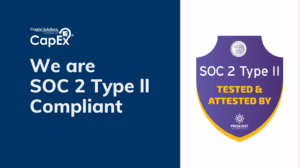Introduction
In today’s dynamic business landscape, organizations face increasing pressure to make precise financial decisions while navigating an environment characterized by volatility, uncertainty, complexity, and ambiguity (VUCA). To succeed in this challenging environment, companies need to adopt forward-thinking strategies that can help them effectively manage Capital Expenditures (CapEx), budgeting, and time. One such strategy is scenario forecasting. This article explores how forecasting scenarios can be a game-changer in helping businesses make informed decisions regarding CapEx planning, budgeting, and time management.
CapEx Planning
Capital expenditures are critical investments made by businesses to acquire or upgrade assets with the goal of generating future value. Effective CapEx planning is essential for maintaining a competitive edge and ensuring long-term financial stability. Scenario forecasting can significantly enhance CapEx planning in the following ways:
- A. Risk Mitigation: Scenario forecasting allows organizations to anticipate potential risks and uncertainties associated with CapEx projects. By analyzing multiple scenarios, businesses can identify the best and worst-case outcomes, enabling them to make more informed decisions about investment feasibility and risk management.
- B. Optimal Resource Allocation: By creating various scenarios, businesses can determine the most efficient and cost-effective allocation of resources, optimizing their capital investment strategy.
- C. Realistic Projections: Scenario forecasting ensures that CapEx budgets are based on realistic assumptions and future projections. This helps organizations set achievable financial goals and avoid overcommitting or underinvesting in crucial projects.
Budgeting
Budgeting is a fundamental aspect of financial planning, allowing organizations to allocate resources effectively to achieve their strategic objectives. Incorporating scenario forecasting into the budgeting process can bring several advantages:
- A. Flexibility: Rather than relying on a static, fixed budget, scenario forecasting allows businesses to create multiple budget scenarios that account for different variables and contingencies. This provides the flexibility needed to adapt to changing market conditions and unforeseen circumstances.
- B. Informed Decision-Making: Scenario forecasting empowers decision-makers to evaluate the financial implications of various scenarios. This enables them to make more informed choices about resource allocation, cost-cutting measures, and revenue generation strategies.
- C. Sensitivity Analysis: By examining the impact of different variables on the budget, businesses can assess their sensitivity to market changes. This enables more accurate predictions of the budget’s resilience in various economic conditions.
Time Management
Time is a precious resource, and effective time management is crucial for businesses to meet deadlines, seize opportunities, and stay competitive. Scenario forecasting can play a vital role in time management by:
- A. Identifying Bottlenecks: Scenario forecasting can help organizations identify potential bottlenecks and inefficiencies in their project timelines. By assessing different scenarios, businesses can develop strategies to mitigate delays and meet deadlines more consistently.
- B. Resource Allocation: Effective time management often depends on resource allocation. Scenario forecasting allows businesses to allocate resources more effectively by considering various timeframes for project completion.
- C. Opportunity Evaluation: Scenario forecasting helps businesses assess the potential opportunities and risks associated with different timeframes. This allows for the prioritization of projects that align with strategic objectives and market conditions.
Conclusion
In an era of constant change, businesses that manage CapEx planning, budgeting, and time effectively gain a competitive edge. Scenario forecasting empowers organizations to make informed, strategic decisions by considering multiple futures. It helps mitigate risks, optimize resources, and improve time management, ensuring financial success and adaptability. Therefore, scenario forecasting should be a key part of any strategic planning process.





